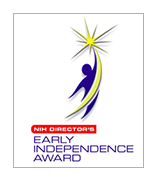2012 Awardees
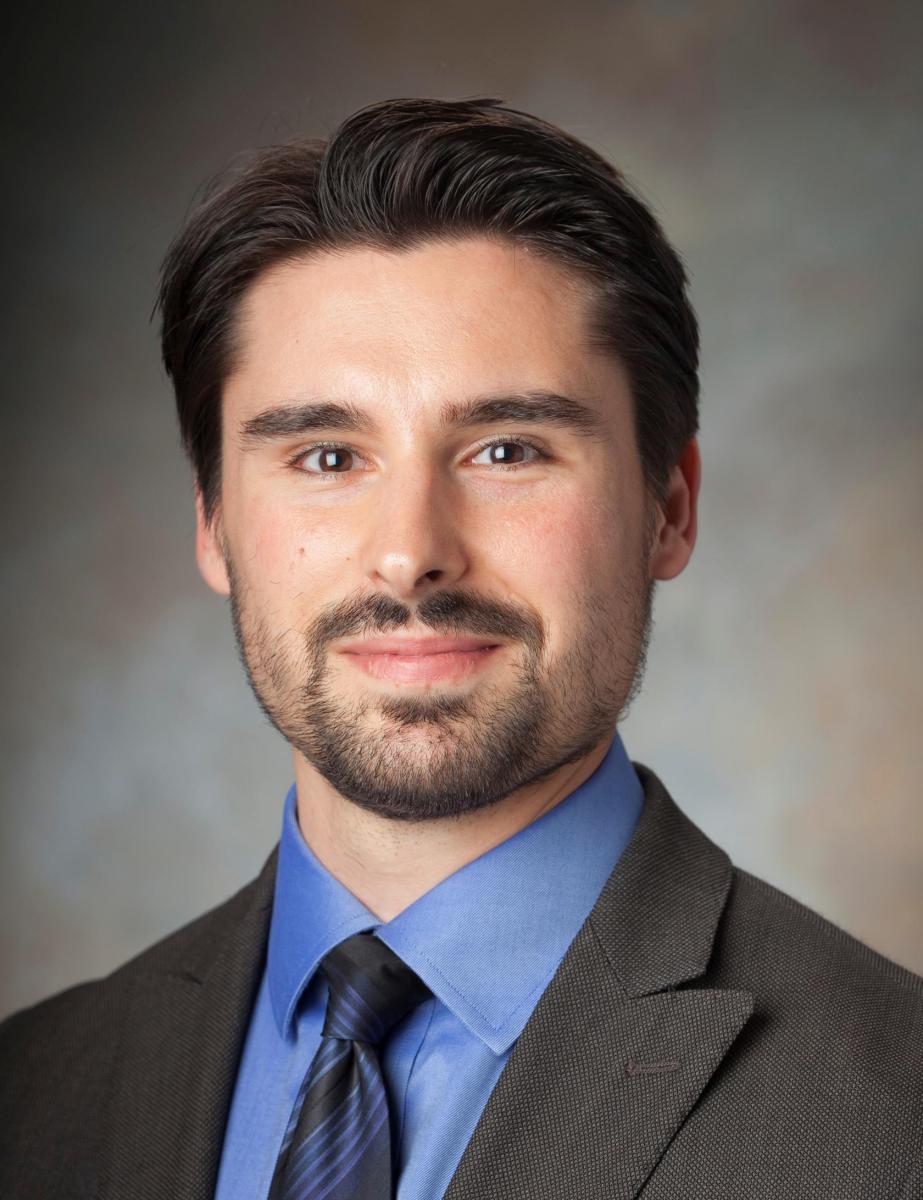
Alan Anticevic, Ph.D.
Yale University
Project Title: Characterizing Cognitive Impairment in Schizophrenia Via Computational Modeling and Pharmacological Neuroimaging
Grant ID: DP5-OD012109
Alan Anticevic is an associate research scientist in the Department of Psychiatry at Yale University. His research focuses on mechanistically understanding cognitive and affective disturbances in neuropsychiatric conditions using the combination of state-of-the-art neuroimaging, pharmacology and computational modeling. Dr. Anticevic trained in clinical psychology and cognitive and computational neuroscience at Washington University in St. Louis where he worked with Drs. Deanna Barch and David Van Essen (2005-2011). Following doctoral training, he joined the Yale University Department of Psychiatry as research faculty working closely with Dr. John Krystal. Anticevic also currently serves as the administrative director for the Center for the Translational Neuroscience of Alcoholism and is a recipient of the 2012 NARSAD Young Investigator Award.
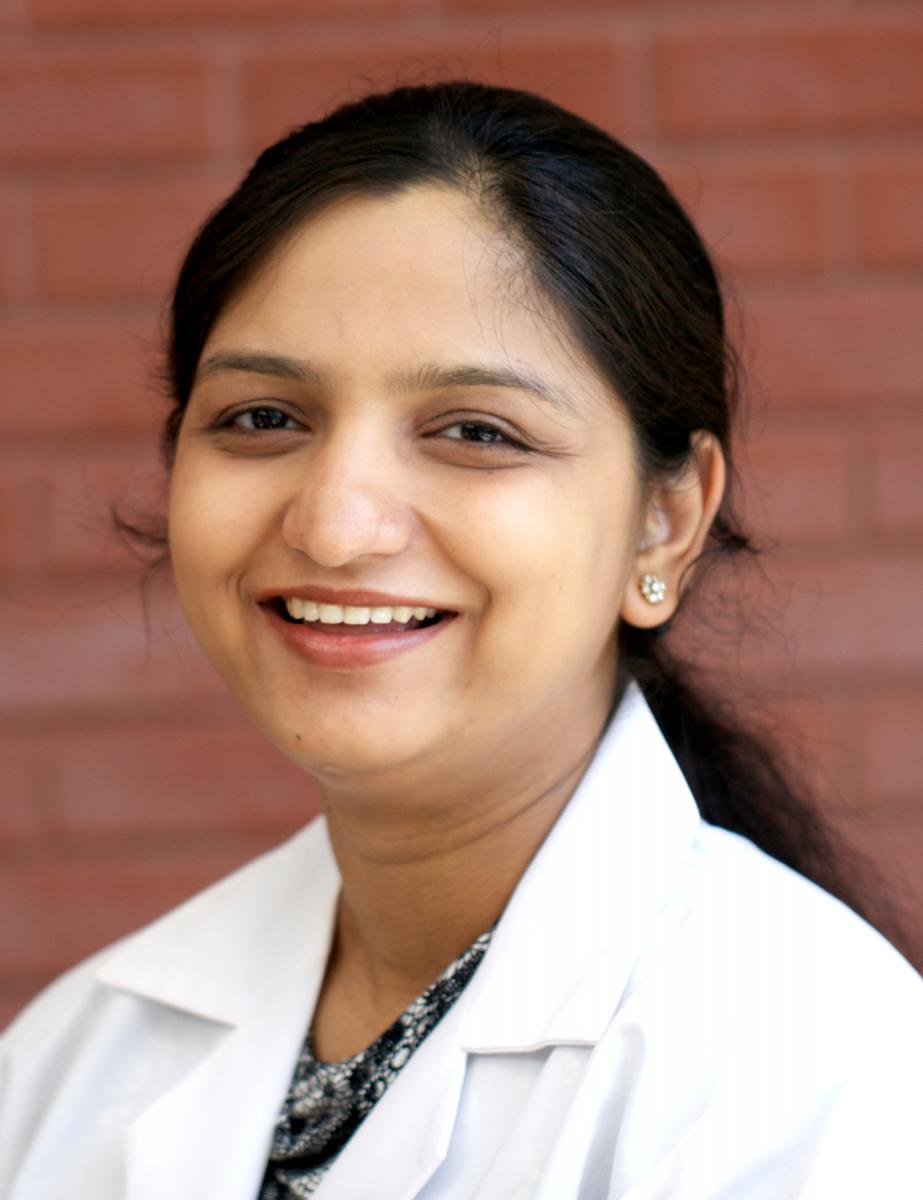
Mona Batish, Ph.D.
Rutgers New Jersey Medical School
Project Title: Detection of Chromosomal Translocations by Single Molecule RNA Imaging
Grant ID: DP5-OD012160
Mona Batish received her master's degree in microbial biotechnology from Panjab University in India. She earned her Ph.D. from the Department of Microbiology and Molecular Genetics at the University of Medicine and Dentistry of New Jersey in 2012. With a desire to work on developing novel technologies she joined the laboratory of Drs. Kramer, Tyagi, and Marras at Public Health Research Institute, where molecular beacon probes were invented. She worked with Dr. Tyagi to understand the mechanism by which mRNAs are transported from the cell nucleus to active synapses in hippocampal neurons. Utilizing probes that enabled the detection of single molecules of RNA, Dr. Batish explored cellular sites where alternative splicing of mRNAs occur. Both research areas utilized a single-molecule florescent in situ hybridization method (smFISH), which can light up mRNA molecules at single-molecule resolution in fixed cells. Dr. Batish now plans to employ the power of this extremely sensitive imaging technique to directly observe molecular processes that lead to cancer.
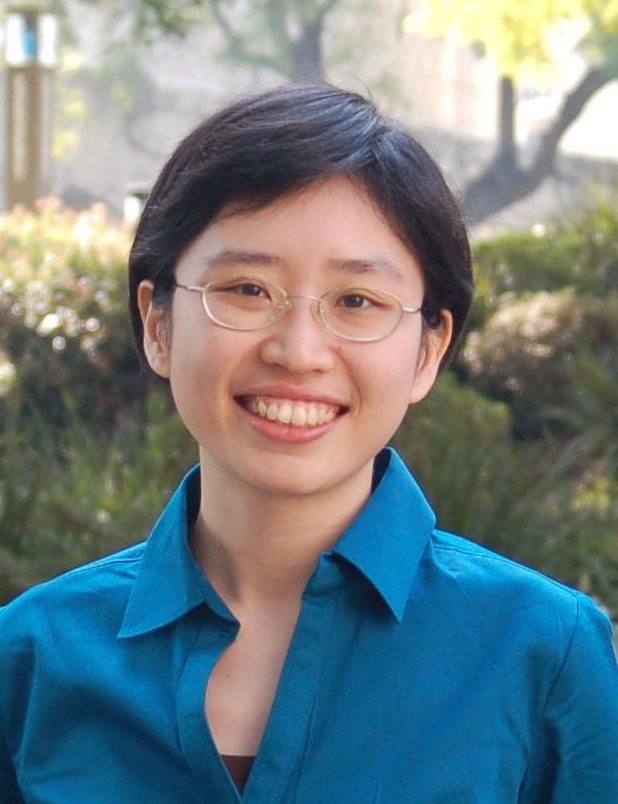
Yvonne Chen, Ph.D.
University of California Los Angeles
Project Title: Engineering of Computational Receptors and Gene Circuits for T-Cell Immunotherapy
Grant ID: DP5-OD012133
Yvonne Chen received a B.S. in Chemical Engineering with distinction from Stanford University in 2004. She was a chemical engineer on the technology transfer team for Gardasil, the human papillomavirus (HPV) vaccine, at Merck & Co. prior to attending the California Institute of Technology, where she received a Ph.D. in Chemical Engineering in 2011. For her graduate research, Yvonne developed RNA based regulatory systems for ligand-responsive control over T-cell proliferation, and she continued her exploration of T-cell engineering as a research scientist in the Center for Childhood Cancer Research at Seattle Children’s Research Institute in 2011. Yvonne is currently a Junior Fellow at the Harvard Society of Fellows, and will begin her assistant professorship in the Department of Chemical and Biomolecular Engineering at UCLA in 2013.
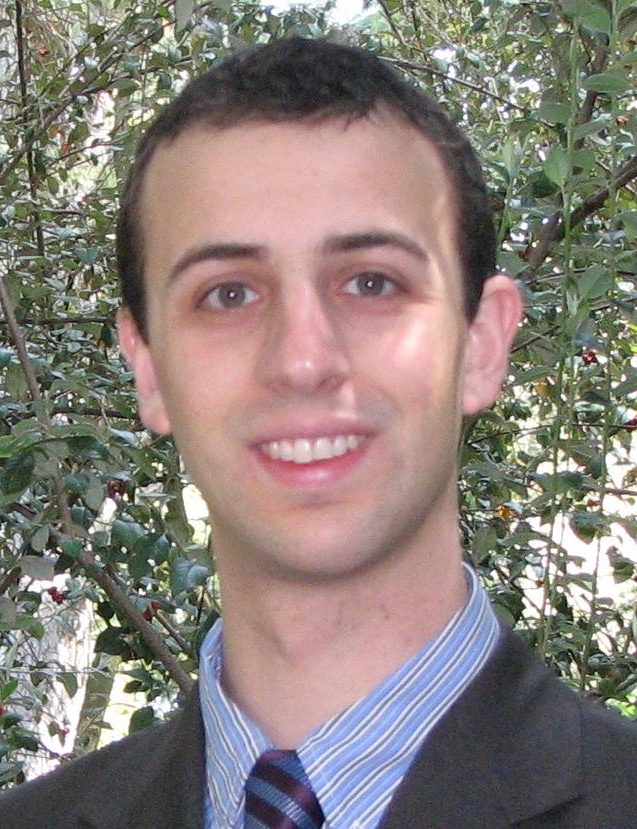
Adam de la Zerda, Ph.D.
Stanford University
Project Title: Molecular Imaging of Protein Glycosylation in Living Subjects
Grant ID: DP5-OD012179
Adam de la Zerda is an Assistant Professor in the department of Structural Biology at Stanford Medical School. In 2011 Dr. de la Zerda finished his Ph.D. in Electrical Engineering at Stanford University with Prof. Sam Gambhir, and then did a postdoctoral fellowship in Chemistry at UC Berkeley with Prof. Carolyn Bertozzi. He is working on the development of new molecular imaging technologies to visualize and interrogate various biomolecules in cancer. Dr. de la Zerda has received numerous awards for his research including the Damon Runyon Cancer Research Fellowship (2011), Jane Coffin Childs Fellowship (2011; offered but not taken), Era of Hope Distinguished Predoctoral Award (2011), Best Poster Presentation at SPIE Photonics West (2009), the Young Investigator Award at the World Molecular Imaging Congress (2008), the Department of Defense Breast Cancer Research Program Predoctoral Award (2008), and the Bio-X Graduate Student Fellowship (2008). He studied Computer Engineering at the Technion – Israel Institute of Technology where he graduated with a B.Sc. Summa Cum Laude.
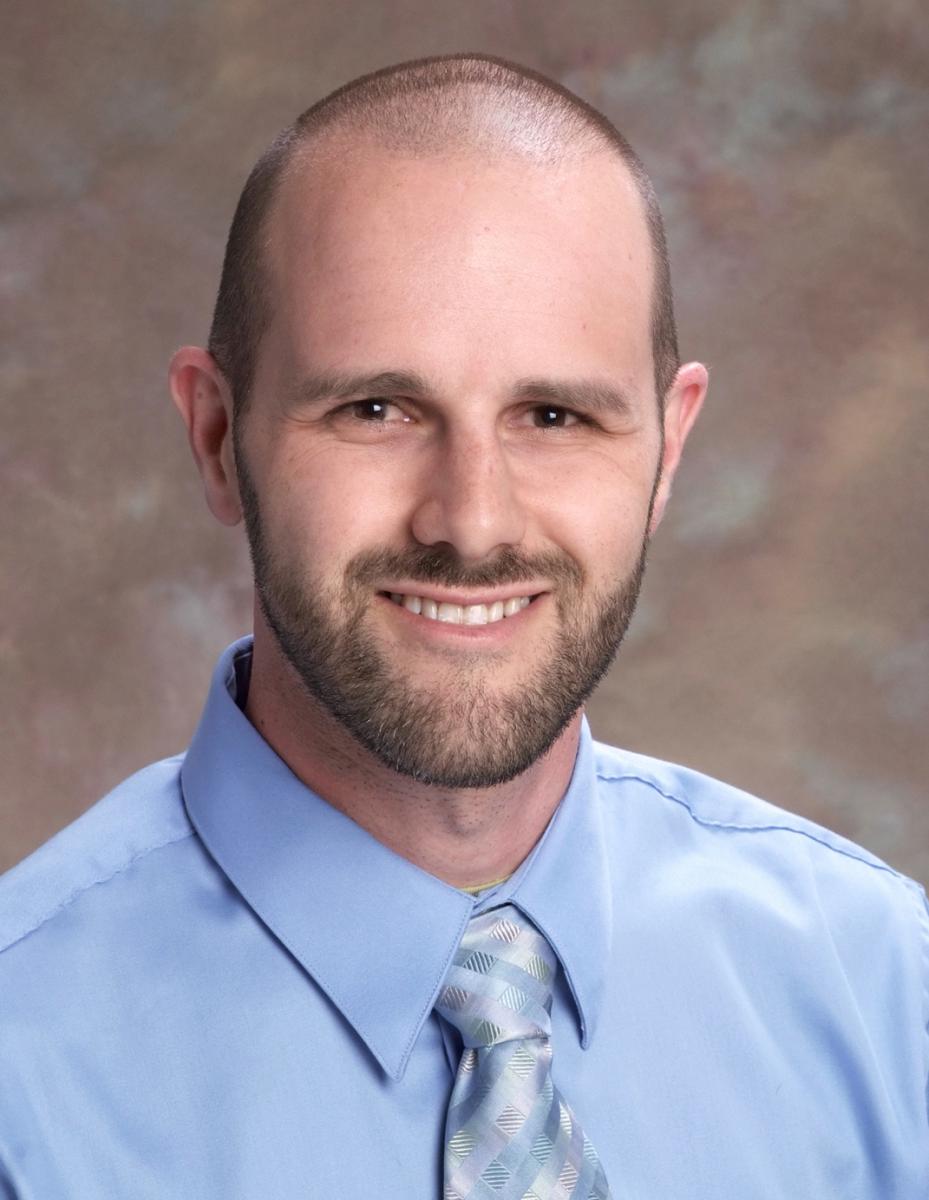
Brandon K. Fornwalt, M.D., Ph.D.
University of Kentucky
Project Title: Exploring the Role of Dyssynchrony in Pediatric Heart Disease with MRI
Grant ID: DP5-OD012132
Brandon Fornwalt grew up in South Carolina and attended the University of South Carolina as an undergraduate in mathematics and marine science. He spent significant time doing research as an undergraduate in Woods Hole, MA at both the Baruch Institute and the Woods Hole Oceanographic Institution. Dr. Fornwalt then worked at The Free Medical Clinic in Columbia, SC for a year prior to starting an MD program at Emory University in Atlanta, GA. During his MD training, he also completed a PhD in Biomedical Engineering focused on cardiac imaging in heart failure at the Georgia Institute of Technology. After finishing his MD/PhD in 2010, Dr. Fornwalt spent a year completing his internship in pediatrics at Boston Children’s Hospital before joining the faculty at the University of Kentucky in 2011. He is currently an Assistant Professor of Pediatrics, Physiology, Biomedical Engineering and Cardiology, and directs the Cardiac Imaging Research Laboratory at Kentucky Children’s Hospital.
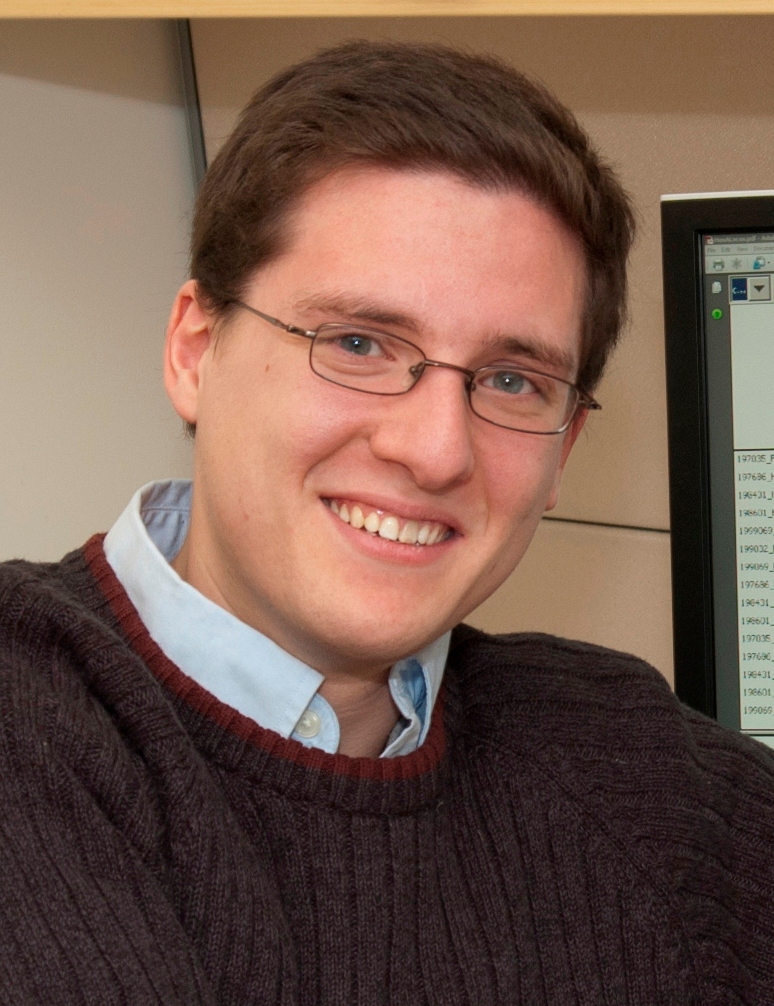
Mitchell Guttman, Ph.D.
California Institute of Technology
Project Title: Deciphering the Mechanism of Large ncRNA Mediated Regulation of Cell State
Grant ID: DP5-OD012190
Mitch Guttman was a fellow at the Broad Institute of MIT and Harvard and a starting Assistant Professor in the Division of Biology at the California Institute of Technology. Mitch received his Ph.D. from the Massachusetts Institute of Technology where he identified and characterized a new class of functional large non-coding RNA genes and their role in controlling cell state decisions in embryonic stem cells. Before this, Mitch received a Bachelor’s degree in Molecular and Computational Biology and a Master’s degree in Computational Biology and Bioinformatics both from the University of Pennsylvania.
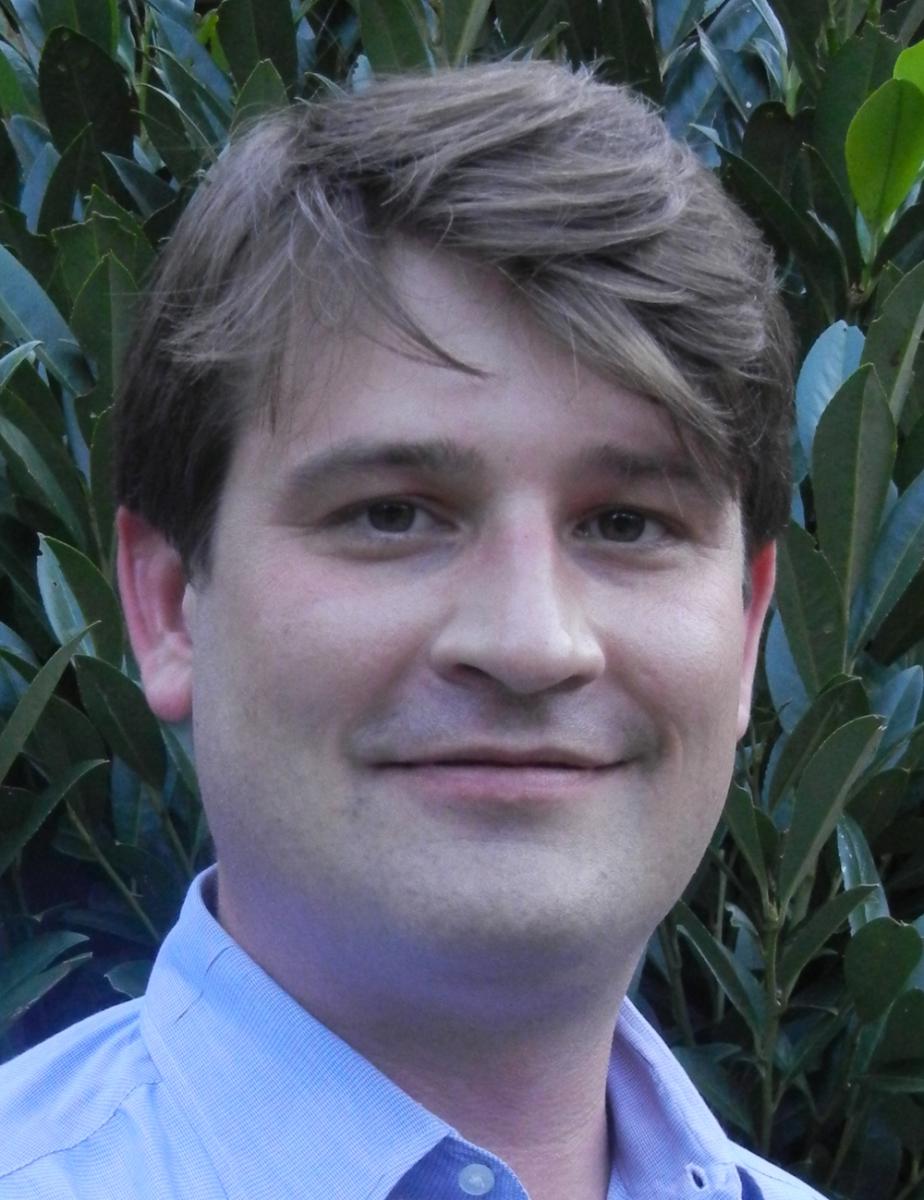
William Kaiser, Ph.D.
Emory University
Project Title: RIP1 and RIP3 Regulation of Apoptosis, Necrosis, and Inflammation
Grant ID: DP5-OD012198
William Kaiser received an A.B. in English and a B.S. in Cell Biology from the University of Georgia. As an undergraduate, his research focused on cell death regulation by viruses in the laboratory of Lois K. Miller. As a PhD candidate in Edward Mocarski’s herpesvirology laboratory at Emory University School of Medicine in Atlanta GA, he investigated the essential antiviral role of programmed necrotic cell death. Genetic studies revealed that despite being important in host defense, the molecular machinery orchestrating necrotic cell death must be held in check for mammalian development, hematopoiesis, T cell receptor signaling, and to suppress chronic inflammation. William Kaiser will join the faculty of Emory University’s Department of Microbiology and Immunology in the fall of 2012 and will use the NIH Director’s Early Independence Award to establish a research program to define the molecular basis of programmed necrosis.
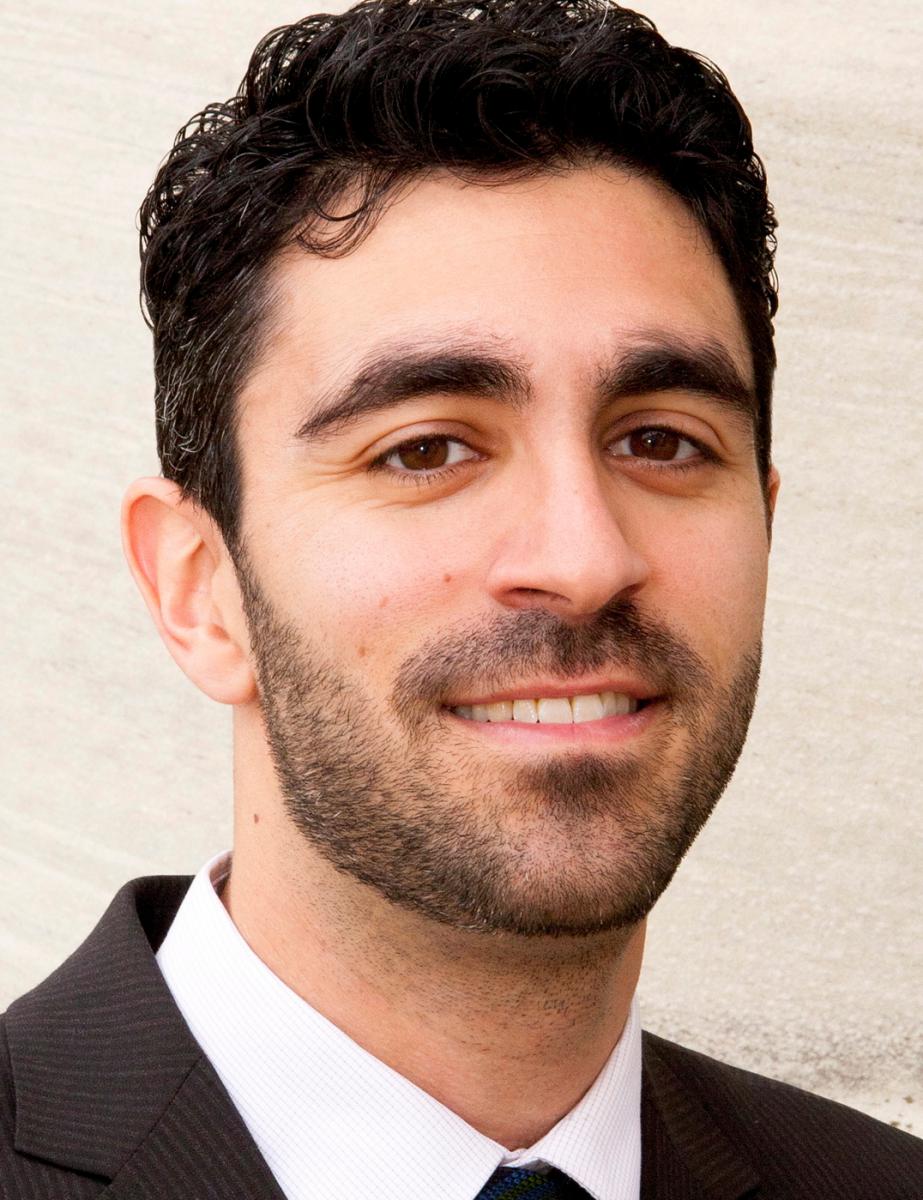
Ziad Obermeyer, M.D.
Brigham and Women's Hospital
Project Title: Unexpected Death After Medical Encounters: Measurement, Reporting, and Analysis
Grant ID: DP5-OD012161
Ziad Obermeyer is a staff physician in the Department of Emergency Medicine at the Brigham & Women's Hospital, with a faculty appointment at Harvard Medical School. He holds an A.B. from Harvard and an M.Phil. from Cambridge, both in the history and philosophy of science, and worked as a consultant to pharmaceutical and global health clients at McKinsey & Co. before returning to Harvard for his M.D. He spent a year as a researcher at the Institute for Health Metrics and Evaluation at the University of Washington, supported by the Bill & Melinda Gates Foundation, and completed his clinical residency in emergency medicine at the Brigham & Women's and Massachusetts General Hospitals. His research investigates population health outcomes as a way to evaluate and improve health care in the United States and abroad.
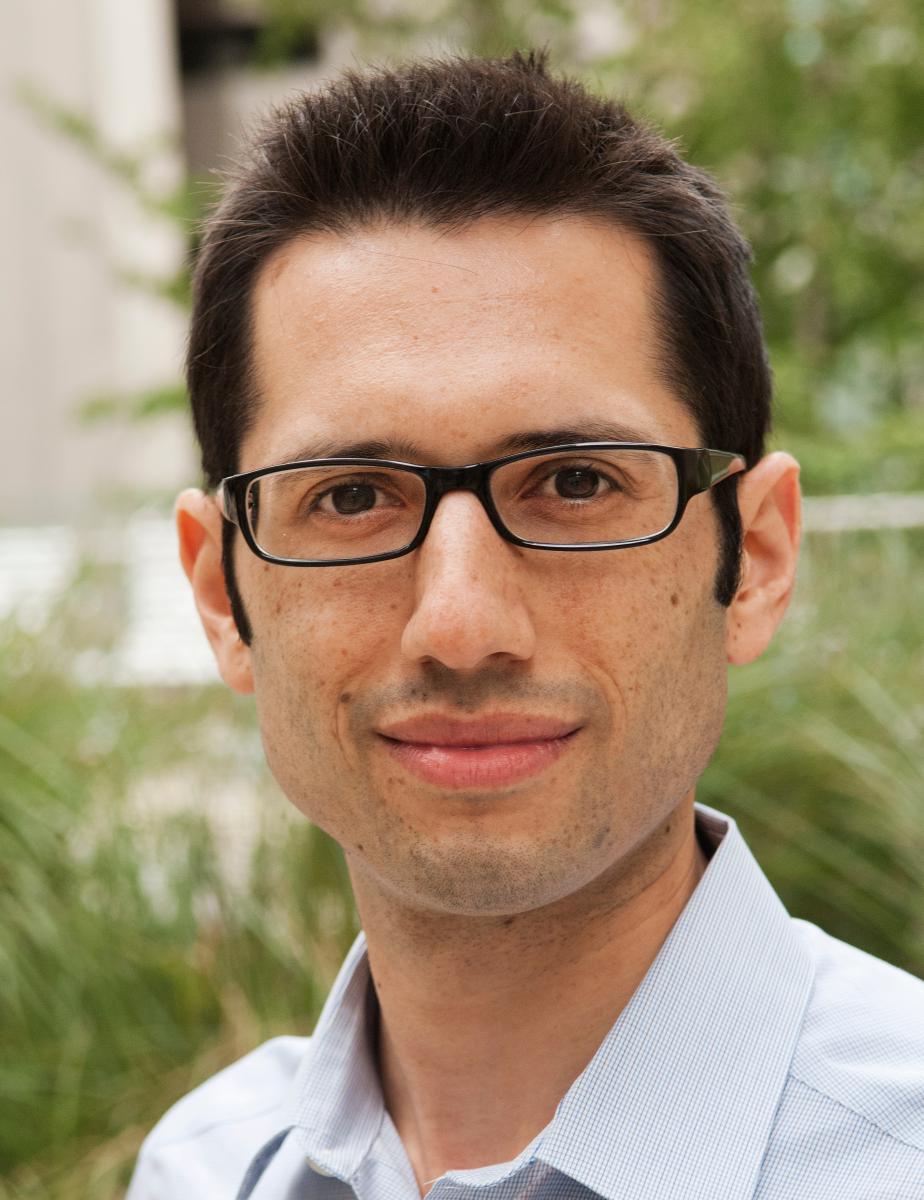
Brad Rosenberg, Ph.D.
Rockefeller University
Project Title: Immune Profiling by High Throughput Sequencing of Complete Antigen Receptors
Grant ID: DP5-OD012142
Brad Rosenberg received his B.S. and M.S. in Molecular, Cellular and Developmental Biology from Yale University, where he focused his studies on T cell immunology and inflammation. He continued his scientific and medical education in the Tri-Institutional MD-PhD Program jointly administered by Weill-Cornell Medical College, The Rockefeller University, and The Sloan-Kettering Institute for Cancer Research. Pursuing his Ph.D. under the mentorship of Drs. Nina Papavasiliou and Charles Rice at Rockefeller, Rosenberg utilized high throughput sequencing technologies to develop new research tools for the study of RNA editing. Using these new techniques, he identified numerous uncharacterized editing sites in mammalian transcriptomes. In May 2012, he completed the clinical component of his M.D. training. He will now establish his own research group as a John C. Whitehead Presidential Fellow at The Rockefeller University, where he will focus on developing high throughput sequencing strategies to profile B and T cell populations in health and disease.
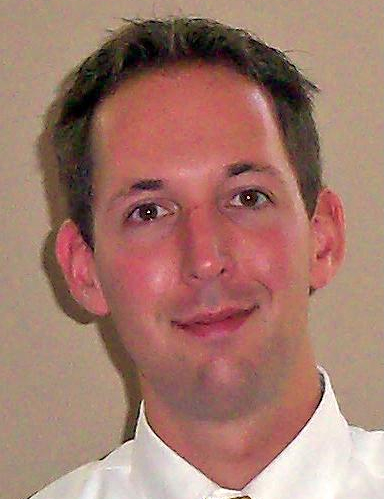
Gregory F. Sonnenberg, Ph.D.
Weill Cornell Medical College
Project Title: Regulation of Host-Commensal Relationships in Human Health and Disease
Grant ID: DP5-OD012116
Gregory Sonnenberg began studying the immune system as an undergraduate researcher at the State University of New York at Buffalo. In 2011, Greg completed his doctoral training at the University of Pennsylvania Immunology Graduate Group investigating the mechanisms that regulate immunity and inflammation at mucosal surfaces. With the Early Independence Award, Greg will establish and lead an independent research program within the University of Pennsylvania, Perelman School of Medicine, Gastroenterology Division, combining cutting edge translational research and innovative mouse models to investigate interactions between the mammalian immune system and intestinal commensal bacteria in the context of human health and disease.
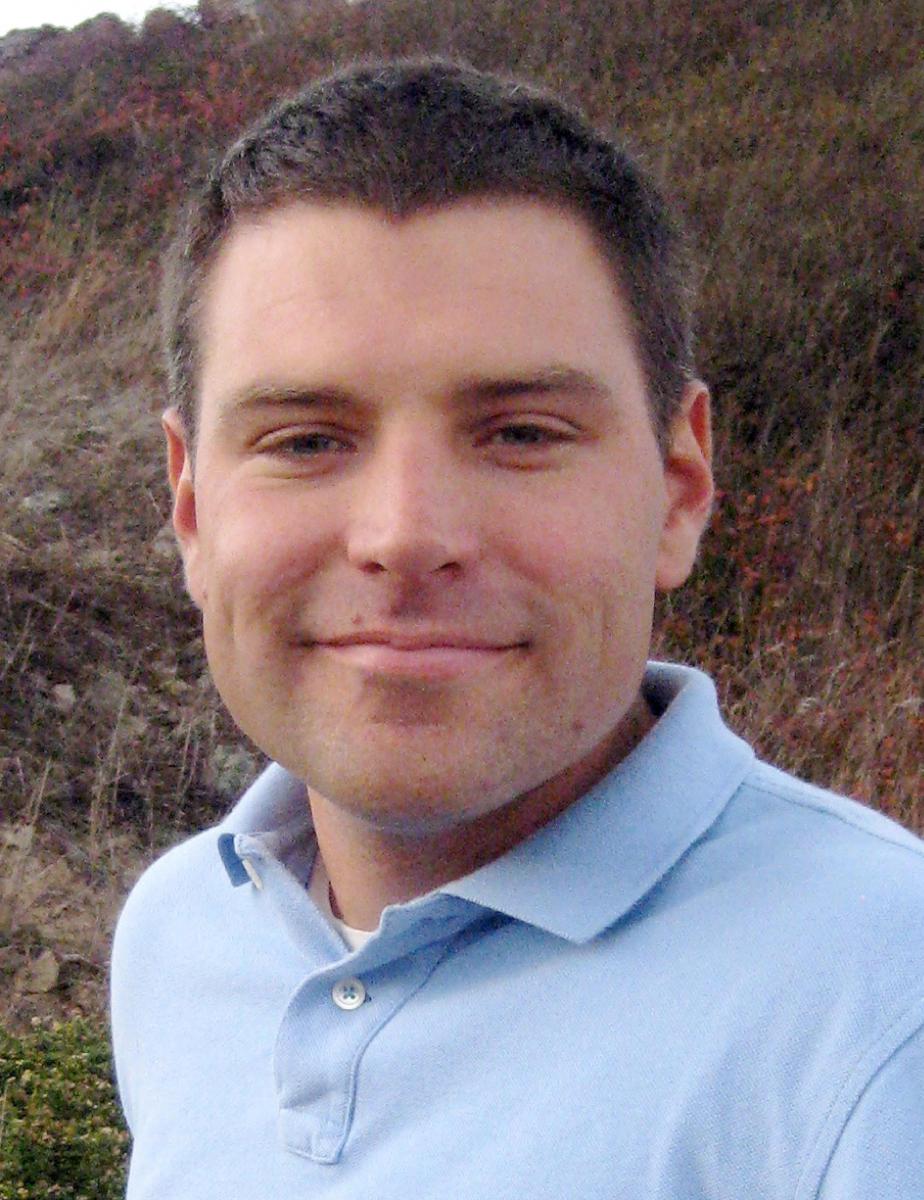
Matthew Thomson, Ph.D.
University of California San Francisco
Project Title: Quantitative Models for Controlling Collective Cell Fate Selection in Stem Cells
Grant ID: DP5-OD012194
Matt Thomson obtained his AB in Physics and a PhD in Biophysics from Harvard University. Matt's graduate research with Sharad Ramanathan focused on understanding how cells use molecular circuits to make developmental decisions in response to changing environmental signals. Matt developed mathematical and computational methods for reducing high-throughput data sets to predictive mathematical models of transcriptional regulatory circuits. To test the models, Matt established an experimental system for imaging cell fate decisions in live, differentiating embryonic stem cells. Matt also worked extensively with Jeremy Gunawardena to develop mathematical methods for understanding how complex signaling circuits can store information. Currently, Matt is a Systems Biology Fellow at the University of California, San Francisco. In this position, Matt is performing a comparative study of molecular circuits that control cell fate decisions across a large set of cell types. He is also developing quantitative experimental methods for monitoring and manipulating stem cell differentiation in populations of cells to ask how multicellular interactions enable tissues to develop and repair themselves without centralized control.
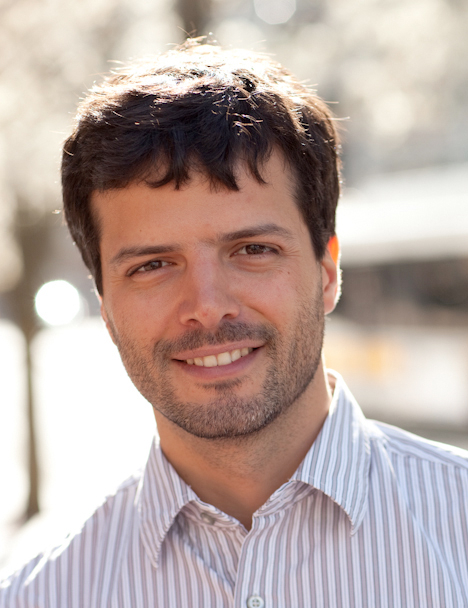
Gabriel D. Victora, Ph.D.
Whitehead Institute for Biomedical Research
Project Title: In Vivo Approaches to Dissecting B Cell-T Cell Cooperation in Germinal Centers
Grant ID: DP5-OD012146
Gabriel Victora joined Whitehead Institute as a Whitehead Fellow in early 2012, having graduated with his PhD from New York University’s Molecular Oncology and Immunology training program, during which he conducted research in the labs of Michael Dustin at NYU and Michel Nussenzweig at Rockefeller University. Originally from Porto Alegre, Brazil, Victora earned bachelor’s and master’s degrees in classical piano from the Mannes College of Music in New York, prior to transitioning to the life sciences and earning a Master of Science degree in Immunology from the University of São Paulo in Brazil in 2006.
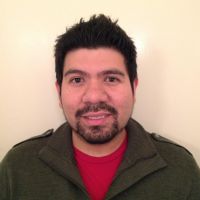
Saul A. Villeda, Ph.D.
University of California San Francisco
Project Title: Regulation of Neurogenesis and Cognition by Systemic Age-Related Immune Factors
Grant ID: DP5-OD012178
Saul Villeda initially studied physiological science as an undergraduate at the University of California Los Angeles (UCLA). During his time at UCLA he trained in developmental neurobiology in the lab of Dr. Patricia Phelps as a MARC U*Star Fellow. He earned his PhD. degree in Neuroscience from Stanford University. While at Stanford he first trained as a neural stem cell biologist with Dr. Anne Brunet, and went on to complete his doctoral work under the training of Dr. Tony Wyss-Coray. As a graduate student in the lab of Dr. Wyss-Coray he investigated how systemic changes in aging blood contribute to age-related impairments in neural stem cell function and cognitive processes. In September 2012, Villeda joined the University of California San Francisco (UCSF) as a UCSF Faculty Fellow in the Department of Anatomy and the Eli and Edythe Broad Center of Regeneration Medicine and Stem Cell Research. His lab at UCSF focuses on understanding how immune-related changes in blood during aging alter regenerative and cognitive functions in the old brain.
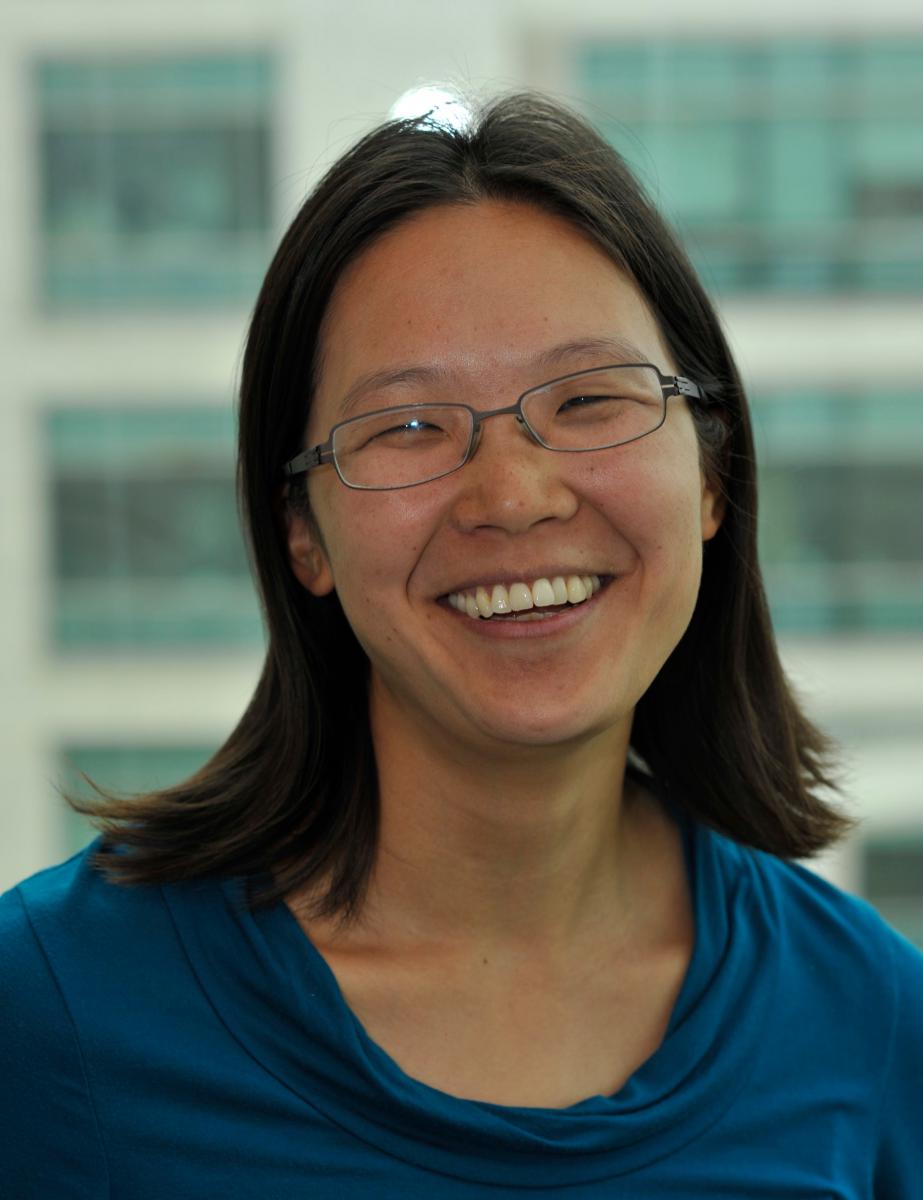
Ellen Yeh, M.D., Ph.D.
Stanford University
Project Title: Defining the Novel Eukaryotic Biology of the Apicomplexan Plastid
Grant ID: DP5-OD012119
Ellen Yeh received her BA in biochemical sciences from Harvard University. As an MD/PhD student at Harvard Medical School, she studied enzymes and pathways involved in biosynthesis of halogenated natural products, under the mentorship of Dr. Christopher Walsh. She then pursued Pathology residency at Stanford, where she turned her clinical focus to infectious disease diagnosis and her research efforts toward the study of malaria with Dr. Joseph DeRisi (UCSF). Her research identified the function of a key antimalarial target, the apicoplast. Ellen will be starting as an Assistant Professor of Pathology and Biochemistry at Stanford Medical School in the Fall 2012. Her laboratory will continue to elucidate the novel biology of the apicoplast with the goal of developing therapeutics against malaria and related pathogens.


